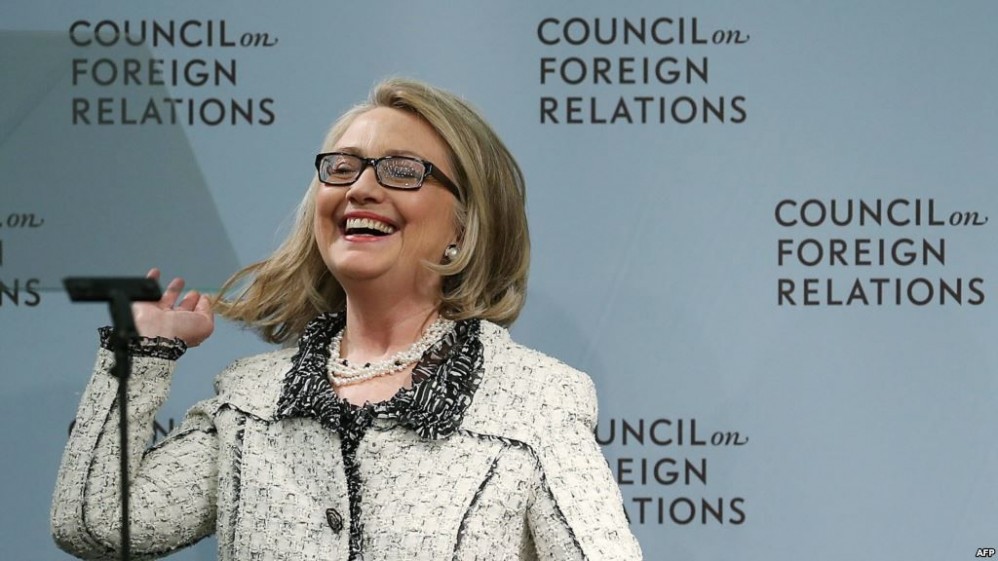| Online: | |
| Visits: | |
| Stories: |

| Story Views | |
| Now: | |
| Last Hour: | |
| Last 24 Hours: | |
| Total: | |
Constitution Bans Hillary’s Foreign Govt Payola

Sean Davis / The Federalist
The Washington Post reported last week that the tax-exempt foundation run by Bill and Hillary Clinton accepted money from seven foreign governments while Hillary served as U.S. Secretary of State (it’s unclear how much foreign money the organization accepted while Hillary was a U.S. Senator). Super shady, right? It’s worse than that, though, becauseArticle I, Section 9 of the U.S. Constitution actually bans foreign payola for U.S. officials.
The constitutional ban on foreign cash payments to U.S. officials is known as the Emoluments Clause and originated from Article VI of the Articles of Confederation. The purpose of the clause was to prevent foreign governments from buying influence in the U.S. by paying off U.S. government officials. Here’s the text of the clause:
No Title of Nobility shall be granted by the United States: And no Person holding any Office of Profit or Trust under them, shall, without the Consent of the Congress, accept of any present, Emolument, Office, or Title, of any kind whatever, from any King, Prince, or foreign State.
Various statutes and rules have been promulgated to effect the constitutional ban on foreign cash. The U.S. House of Representatives bans cash payments from foreign governments. The U.S. Senate, of which Hillary was a member from 2001 to 2009, bans cash payments from foreign governments. And the U.S. State Department bans cash payments from foreign governments. Let’s take a look at the specific language from the State Dept.:
Executive branch employees are subject to restrictions on the gifts that they may accept from sources outside the Government. Unless an exception applies, executive branch employees may not accept gifts that are given because of their official positions or that come from certain interested sources (“prohibited sources”).
A prohibited source is a person (or an organization made up of such persons) who: is seeking official action by, is doing business or seeking to do business with, or is regulated by the employee’s agency, or has interests that may be substantially affected by performance or nonperformance of the employee’s official duties.
Does a foreign government have business with the U.S. State Department? Is a foreign government generally seeking official action by the U.S. State Department? You better believe it.
Oman, Qatar (which owns the Al-Jazeera network), Kuwait, and Algeria all funneled clash to the Clinton Foundation while Hillary was Secretary of State. Each country had business pending before the U.S. government. And it turns out that Hillary even met with the Algerian prime minister after her foundation cashed a $500,000 check from the Algerian government:
Clinton met with the president of Algeria during a 2012 visit to the country.
A State Department spokesman referred questions about the ethics-office reviews to the charity. Nick Merrill, a Clinton spokesman, declined to comment.
Besides Algeria, a number of the other countries that donated to the foundation during Clinton’s time at the State Department also lobbied the U.S. government during that time.
Qatar, for instance, spent more than $5.3 million on registered lobbyists while Clinton was secretary of state, according to the Sunlight Foundation. The country’s lobbyists were reported monitoring anti-terrorism activities and efforts to combat violence in Sudan’s Darfur region. Qatar has also come under criticism from some U.S. allies in the region that have accused it of supporting Hamas and other militant groups. Qatar has denied the allegations.
Read more at The Federalist:





A rotten carcass is a rotten carcass no matter how deep you delve.